34% of U.S adults believe Trump undertook in illegal dealings with Russian officials before the inauguration
The President returned from his recent trip to the G-20 summit to find Americans divided in their perceptions of how it went. The public response to his trip was much like reaction to his first foreign trip in May. In this Economist/YouGov Poll, 37% approve of how he handled the trip, while 39% disapprove.
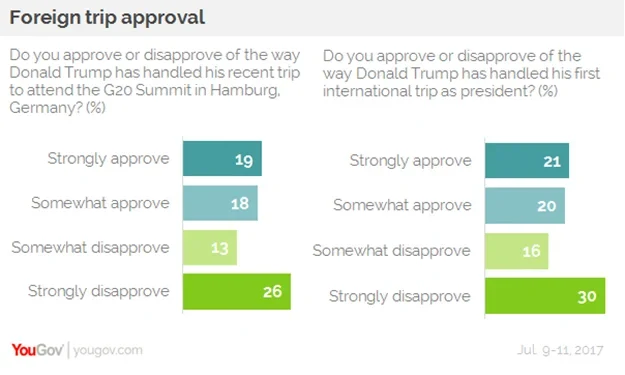
Public reactions to this trip were complicated by questions about the President’s extended meeting with Russian President Vladimir Putin. Perceptions of Donald Trump’s beliefs about Russia are out of line with Americans’ own views of that country. Americans see President Trump warming towards Russia, while they remain clearly negative in their own judgment about that country. As for the Russian President, most Americans, Republican and Democrat, have unfavorable views of Putin.
By nearly three to one, Americans view Russia as unfriendly or an enemy, not as a friend or ally. But Americans believe the President thinks the opposite. That is true for Republicans, as well, whose views have shifted the most since the Trump-Putin meeting. Last week, Republicans thought the President saw Russia as an unfriendly country. This week, the larger share of Republicans say the opposite.
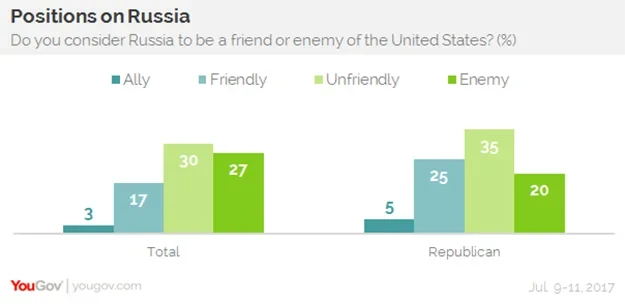
So it may not be a surprise that all in all, Americans disapprove of how Donald Trump is handling Russia. In this week’s poll, 34% approve, 44% disapprove.
The latest news may complicate things further. All the interviews in the latest Economist/YouGov Poll took place after the Trump-Putin meeting, but most took place after The New York Times reported the meeting last summer between Donald Trump, Jr. and a Russian lawyer. We don’t know from the poll whether all respondents were aware of the story. Nearly all the interviews were completed before the emails Trump, Jr. received beforehand promising damaging information about Hillary Clinton became public. The poll can’t measure the full impact, although half the public this last weekend said that they were concerned about improper relations between the Trump Administration and Russia.
So far, Americans don’t see anything improper or illegal done by the President himself before the Inauguration. Alternatively, most do believe a post-Inauguration Russia-related claim: that he has attempted to influence the Federal Bureau of Investigation’s investigation of Russian influence in the 2016 election.
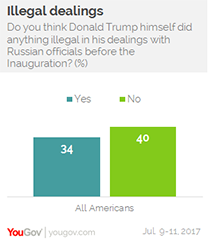
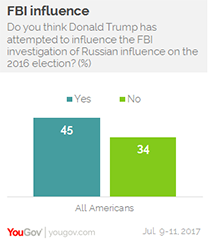
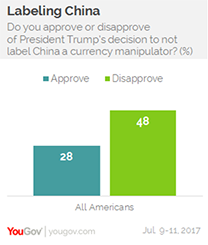
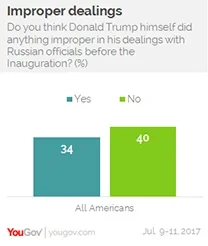
Concerns about Russia may overshadow two other foreign policy areas on which Americans mostly see eye to eye with the President: North Korea and China. On both, they grade him better than they do his handling of Russia. China is as likely to be seen as a friendly as an unfriendly country by the public and by Trump, and Americans are as likely to approve as to disapprove of the President’s handling of that country.
They are pleased with one Presidential decision towards China – not labeling it as a currency manipulator, something he had promised to do during the campaign. As many Democrats approve of that action as disapprove. And most would be willing to support working with China to contain North Korea.
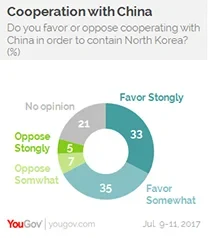
Americans overwhelmingly see North Korea as an enemy of the United States, and they believe the President agrees with them. They are slightly more likely to approve than disapprove of the way he is handling that country. And they appear willing – at least for now – to consider direct talks with the Hermit Kingdom to end that country’s nuclear program.
But many are also willing to support military action to end North Korea’s nuclear program. Republicans are twice as likely as Democrats to favor military action.
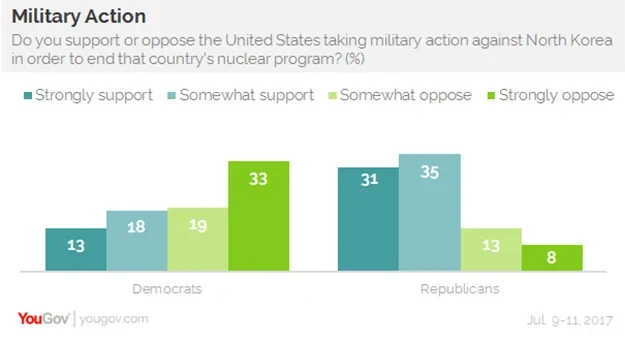
Many Americans expect war is likely during the Trump Administration. 57% this week answered that they believe Donald Trump is likely to get the country into one. Those who believe that are much less willing to favor military action against North Korea, even as a way of ending that country’s nuclear program.
Foreign policy is not seen as the President’s strength. Just under a third believe Mr. Trump understands it even somewhat well. Most think he does not. Even one in four Republicans are concerned. But a bigger concern may be how he responds to events. Less than one in four think the President considers carefully what he says before speaking. Most say he reacts and speaks without thinking very much. Nearly two-thirds of Republicans agree.
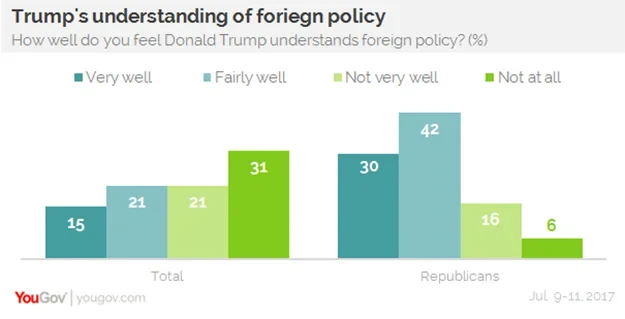
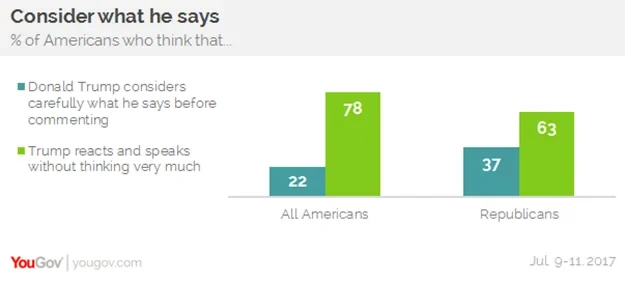
This last foreign trip hasn’t helped the President’s approval rating, which this week is 37%. While not statistically different from what it has been in recent weeks, it is the lowest percentage approval for the President recorded in Economist/YouGov Polls.








